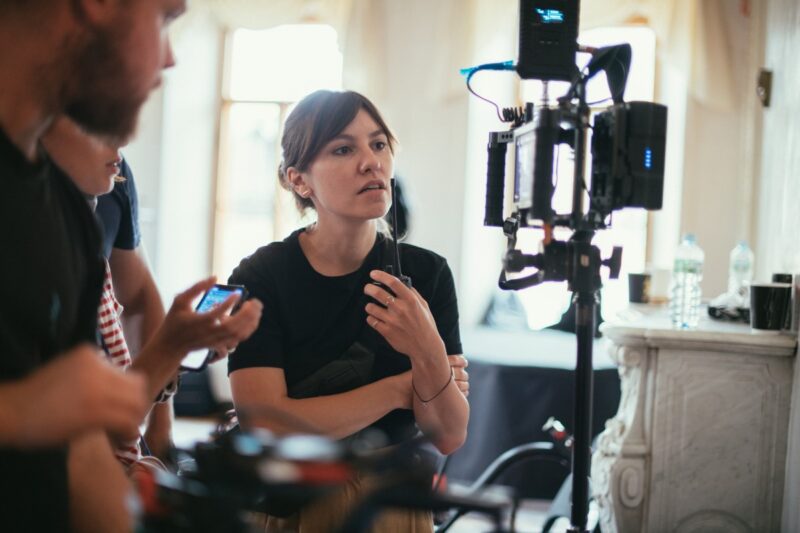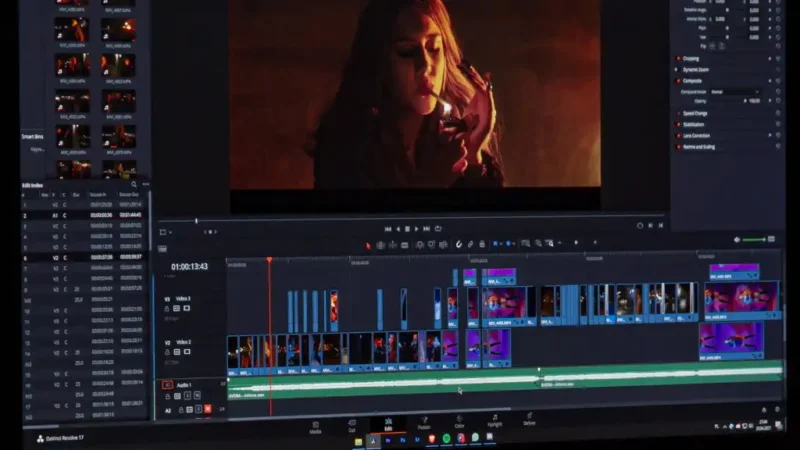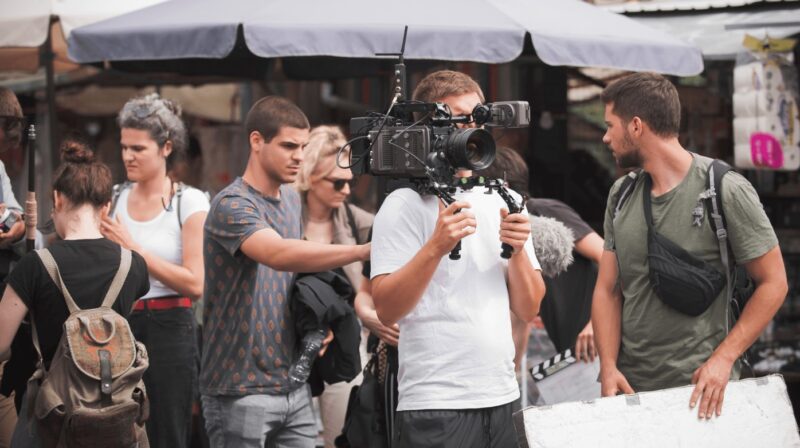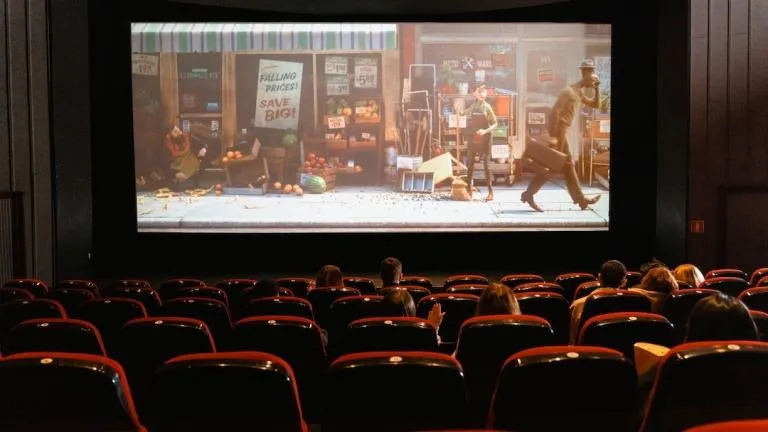I believe we can all agree that finding your voice as an indie filmmaker is a big deal. Your voice is like your signature move, your special sauce that makes your films stand out. But discovering that voice can feel like a maze, right? Well, I’ll break it down for you in simple terms.
We’re going to explore how to find that elusive “you” factor that’ll make your films unmistakably yours. No more blending into the crowd. It’s time to shine, baby!
Understand your influences
Every filmmaker is shaped by their influences. The movies you love, the directors you admire, and the stories that move you all play a role in shaping your cinematic voice. By understanding your influences, you can gain insights into your preferences and inclinations, which will help you carve out your own niche in the film industry.
What to do?
1. List your favorite films and directors
Write down a list of films and directors that have inspired you. Analyze what you love about their work. Is it the storytelling, the cinematography, the characters, or the themes?
Understanding what draws you to these works will help you identify the elements you want to incorporate into your own films. Reflecting on your choices can reveal patterns in your tastes and preferences.
2. Study their techniques
Break down scenes from your favorite films. Pay attention to camera angles, lighting, editing, and sound. Understanding these elements will help you see how your influences shape your taste. Take notes on specific techniques that resonate with you and think about how you can adapt them to your style.
This exercise will enhance your technical skills and deepen your appreciation for the craft.
Tell personal stories
Your unique experiences and perspectives are your greatest assets as a filmmaker. Telling personal stories allows you to connect with your audience on a deeper level. When you share your own experiences, you bring authenticity and relatability to your work, making it more impactful and memorable.
Draw from personal experiences
Think about significant moments in your life that have shaped who you are. How can these experiences be translated into a film? Consider the emotions, challenges, and lessons from these moments and use them to create compelling narratives.
Personal stories often resonate more deeply with audiences because they are genuine and heartfelt.
Write what you know
Start with what you know and expand from there. Authenticity resonates with audiences, and your personal touch will make your stories stand out.
Writing about familiar subjects allows you to infuse your work with rich details and nuanced perspectives. As you gain confidence, you can explore broader themes and ideas while maintaining a personal connection to your stories.
Experiment and take risks
Finding your voice involves experimentation and taking risks. Don’t be afraid to try new things and push boundaries. Embracing uncertainty and stepping out of your comfort zone can lead to unexpected discoveries and creative breakthroughs.
Try different genres
Don’t box yourself into one genre. Experiment with different types of storytelling, from drama to comedy to sci-fi. Each genre will teach you something new.
Exploring diverse genres allows you to develop a versatile skill set and find your strengths. It also prevents your work from becoming predictable and stale.
Collaborate with others
Work with different crews and actors. Collaboration can introduce you to new ideas and techniques, enriching your own style. Engaging with a variety of creative minds can spark inspiration and lead to innovative solutions. Be open to feedback and willing to incorporate new perspectives into your work.
Develop your visual style
Your visual style is a key component of your filmmaking voice. It includes everything from your choice of colors and lighting to your camera movements and shot composition.
A distinctive visual style can make your films instantly recognizable and visually compelling.
What to do:
- Create a visual diary: Keep a visual diary where you collect images, drawings, and photographs that inspire you. Over time, patterns will emerge that reflect your aesthetic preferences. This diary will serve as a valuable resource for visual references and creative ideas. Regularly revisiting your collection can help you stay inspired and focused on your visual goals.
- Experiment with camera techniques: Practice different camera techniques and see what feels right for your storytelling. Do you prefer handheld shots or smooth dolly movements? Natural light or dramatic lighting? Experimenting with various techniques will help you discover what best complements your narrative style. Don’t be afraid to mix and match to create a unique visual language that is distinctly yours.
Embrace your voice in every aspect
Your voice should permeate every aspect of your filmmaking, from the script to the final edit. Consistency in your vision and approach will create a cohesive and powerful cinematic experience.
Write in your own style
Don’t try to mimic others. Write scripts that reflect your way of speaking and thinking.
Your unique dialogue and narrative style will set you apart. Authenticity in your writing will resonate with audiences and make your characters and stories more relatable. Trust your instincts and embrace your natural voice.
Edit with purpose
The editing room is where your voice truly comes alive. Be intentional with your cuts, pacing, and transitions. Each decision should reflect your vision and storytelling approach.
Editing is not just about assembling footage; it’s about shaping the narrative and enhancing the emotional impact of your film. Make deliberate choices that reinforce your unique style and perspective.
Seek feedback and reflect
Feedback is crucial for growth, but it’s important to filter it through the lens of your unique voice. Constructive criticism can help you improve, but it should not dilute your distinct style and vision.
Share your films with a trusted circle of friends, mentors, and peers. Listen to their feedback, but stay true to your vision. Seek out diverse opinions to gain different perspectives, but remember that not all feedback will align with your goals. Use the insights to refine your work while maintaining your authenticity.
Consider the feedback you receive and reflect on how it aligns with your voice. Use it to refine your style, not to change it. Regularly evaluate your progress and make adjustments that enhance your unique perspective. Stay committed to your vision and trust that your voice will continue to evolve and strengthen over time.
All in all…
Get personal with your stories. The more you pour your real experiences and perspectives into your work, the more authentic your voice becomes. Don’t hold back! At the end of the day, your voice is what’ll make your movies pop in this crowded cinema scene. So stay true to your unique self.
Related Posts:
- Light Your Scenes Without Breaking the Bank: DIY…
- 80 Cliched Dialogues NOT to Include in Your Script
- Story Structure 101 - Build the Perfect Plot for Your Film
- Get Your Film Seen - Why Distribution Matters
- How to Network with Other Filmmakers in Your Region
- 10 Tips for Choosing the Perfect Theme for Your…








